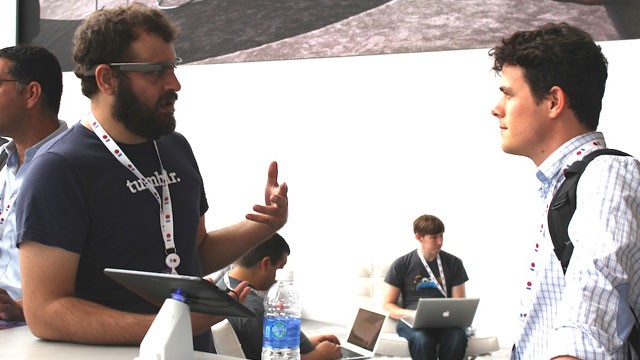SAN FRANCISCO–Android app developers this week saw a lot of new features and got advice directly from Google about how to run their businesses better. Services added to the Google developer console and Google Analytics range from connecting them to translation companies for help localizing their apps for different markets to being able to manage staged rollouts for beta releases of their apps.
Here are the top five changes that Android developers will welcome with open arms.
1. Staged Rollouts
One of the hottest new features for Android developers is staged rollouts, or the ability to push unreleased apps to alpha and beta testers. Android developers will also be able to give members of the press early access to their apps through the Google Play store. All early testers will opt in to the early releases and can delete the test apps at any time. Developers will be getting new controls that let them manage their groups of alpha and beta testers using Google Groups and Google Play communities. Developers can manage limited and staged rollouts, stop a rollout, push fixes to beta testers who already have the app installed, and more.
2. Localization Services
Unveiled at the Google I/O 2013 keynote speech, Android developers will now have integrated services into their Google Play development platform that connects them to professional translation service providers. So, if an app is selling well in, say, Poland, but the app has never been translated into Polish, doing so could open up a new revenue stream.
Also related to translation and localization are real-time previews of an app in development as text is added and changed. For example, if a developer codes an app with text in English but is also porting it to Spanish, French, German, and Japanese, she can see how the text will display on all five ports at once. As she edits the text, she can see how it will reflow in each of the different languages, again all on one screen.
3.Revenue Charts With Better Insight
As of this week, Android developers have new visibility into their revenue. New charts display information such as how much money an app has made historically over time, but also how much it has made on any particular day (which was possible before only by completing a multi-step process that involved exporting data and importing it elsewhere). Being able to see how much money an app made on a certain day can better tip off developers to events that may have caused an increase or decrease.
A few new changes to referral tracking and usage data will be available in the coming weeks, according to Riccardo Govoni, tech lead for the Google Play developer console. Soon, developers will be able to link Google Analytics and the Google developer console, which "gives a better view of the conversion funnel," he said. "And this integration goes both ways."
4. Detailed Information About Tablet App Usage
New information for developers from the Google developer console and Analytics include a neat pie graph chart that shows app usage by screen size and screen density for Android tablets.
From the consumer's end, a new section of the Play Store now shows apps that are optimized for tablets, which was sorely lacking and a huge pain point for developers who built apps specifically for tablets, such as stylus input note-taking apps.
5. Tips for Optimizing Apps
An Optimization Tips section will now give Android developers more visibility into what might be holding back their app from greatness. If there are any requirements that your app does not meet, the tips section will call out and explain what to do to fix them, according to Miles Barr, engineering manager for Android Apps on Google Play.
Several more significant changes, including the ability for any developer to reply directly to a user review or comment (announced at the 2012 Google I/O, but not universally available until sometime soon this year), are all aimed at keeping Android developers happy and churning out valuable software for Google's mobile OS.
 Apple's 50 billionth download: Say the Same Thing
Apple's 50 billionth download: Say the Same Thing




